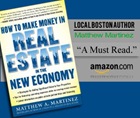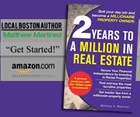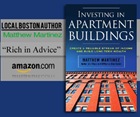When it comes to heating your home, there are many options available. Each system has its own advantages and disadvantages. Which system will work best for you should be based on considerations such as home design, installation requirements, fuel costs, personal preferences, and budget. Recent innovations in heating provide more selection, with renewed focus on efficiency and alternative energy. Some of the more common types of home heating include oil burning furnaces, gas burning furnaces (which fall under the common category of “forced-air”* systems), electric heat, solar heat, wood burning stoves, radiant heat, geothermal heat, and alternative fuel burning stoves. Let’s take a general look at each of the aforementioned systems.
Oil Burning Furnaces – (*Are “Forced Air” systems, in which air is heated in a furnace and distributed throughout the home via ductwork and piping. Forced air systems are very common and carry the extra advantage of being able to use the same system for cooling the home as well.) Systems that use oil as fuel for the furnace are generally less expensive than gas furnaces and tend to last longer, both very appealing positives. As recent times have proven, oil prices are unpredictable – which is not ideal if your concern is stable and consistent heating costs. Oil furnaces are not considered a “green” method of heating because they run by burning oil, a non-renewable resource.
Gas Burning Furnaces – Are also forced air systems, where the furnace is equipped to burn either propane or natural gas. Both are cleaner than oil, which is a plus in the green category. They also provide odorless heat, a unique, and for some folks, very important benefit. Natural gas prices have risen in recent years however, and propane in particular can be very expensive for the extensive heating required for a home.
Electric Heat – If efficiency is your concern, electric heat trumps them all. 100% of the power generated is converted into heat with no waste (*). Electric heats up fast, which allows homeowners to fine tune levels with ease and eliminating the dreaded “warm-up” time associated with entering a chilly house. Remember this (*) when we said no waste? Electricity can be generated from a coal-burning plant, thus canceling out the “green” benefit of 100% efficiency. Electricity has seen dramatic increases in price in recent years so electric heat is not considered the most economical option in today’s market.
Solar Heat – Uses the ultimate renewable resource, the sun, to provide warm air and hot water to homes. In addition, no harmful emissions are produced, making solar heat arguably the cleanest and most environmentally friendly way to heat (and power) one’s home. Solar is a rapidly evolving technology, one in which critics argue is not perfected enough to be relied upon as a primary source of home energy. Because retrofitting a home to run on solar power is a costly enterprise, some argue its cost-effectiveness. However proponents of solar power are confident that when implemented, the monthly savings will culminate into revolving long-term savings.
Wood Burning Stoves – If inexpensive (or free) firewood is available then a wood burning stove can be very cost-effective method for heat. Using salvaged wood from your own property is extremely environmentally friendly because it eliminates any sort of shipping or production of raw materials. Wood burning stoves really don’t have the capacity to heat an entire house, so one cannot rely entirely on a wood burning stove, adding to cost. Wood smoke is also an air pollutant and can aggravate respiratory conditions. Odor can sometimes be an issue depending on personal preference.
Radiant Heat – Works through the process of transferring heat from a hot to a cold surface. Baseboard heating can be considered a radiant heat. Radiant heat typically involves hot water tubing embedded in the floor, baseboard, or even panels in the ceiling. A water boiler heats water which is then run through the tubing providing the heat. A more dated version of radiant heat are steam radiators found in older homes which operate on the same principal but are generally considered unsightly and not space-effective. Radiant heat provides arguably the most comfortable and balanced heat. Boilers are also very energy efficient. Disadvantages include a very slow heating up cycle that’s difficult to fine tune. If maintenance is required it can sometimes be difficult and costly to access hidden heating pipes.
Geo-Thermal Heat – Utilizes the heat from the Earth’s core to heat one’s home. The temperature below the earth’s surface remains a constant renewable resource. Geo-thermal heating systems consist of underground piping installed with a special fluid to absorb heat. This fluid is then pumped into the home and the heat distributed through a fan. This is another extremely environmentally-friendly home heating option using a readily available, renewable natural resource with no waste. Geo-thermal heating is a relatively new technology however, which carry the disadvantages of being expensive and difficult to maintain.
Alternative Fuel Burning Stoves – Are enjoying increasing popularity. These stoves use fuel from corn, wood pellets and other natural resources. By using a commodity that is produced locally, such as corn, these stoves are very cost effective, support local industry, and cut down on waste due to production and importation of goods. Like a wood burning stove, critics say that alternative fuel burning stoves are incapable of heating an entire house, providing the need to supplement this system with another, thus driving up cost and waste.
When it comes to heating your home, you’ve got a lot of choices! It’s important to remember that each home is unique, making certain systems better for certain homes. It’s best to consider the existing design of the home, the surrounding environment, and then take into consideration personal preferences with regards to cost, sustainability, and environmental effects.
About the Author: Dylan Taft is the Broker/Owner at Taft Street Realty, a professional real estate firm serving the Ulster County real estate market. Dylans’s focus is assisting families and individuals in the buying and selling of Ulster County homes. For more information visit www.taftstreetrealty.com.









